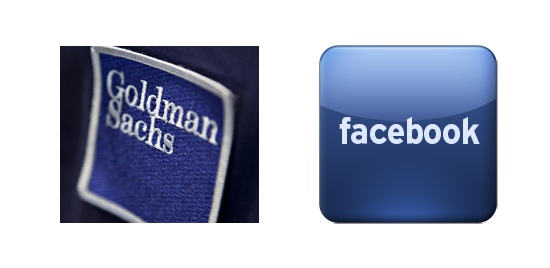

Few companies rival the success that Facebook is currently seeing. Just a few years ago many were saying that Facebook was nothing more than just another soon to be obsolete MySpace wannabe. However, as the site began to grow and expand, its popularity grew. With new features and applications that MySpace simply could not compete with, the company once labeled as a flash in the pan wannabe had overtaken the giant known as MySpace. As a result, today, with the exception of Google, Facebook is arguably the hottest website on the Internet and clearly the undisputed king of the social networking world.
It shouldn’t come as a surprise that many people would love to own a share of Facebook stock to be able to say that they own part of the media juggernaut.
Now that Goldman Sachs has become involved, the dream of American businessmen to own Facebook began to seem very realistic.
After the excitement over the possibility grew, the bubbles of millions were popped as Monday Goldman Sachs announced that due to “intense media attention,” they will not be offering stocks in Facebook to clients in the United States, according to a report by the Wall Street Journal.
Goldman Sachs claimed that they “concluded the level of media attention might not be consistent with the proper completion of a U.S. private placement under U.S. law.”
According to the Wall Street Journal, Goldman Sachs will still offer shares to their clients outside of the United States.
However, the periodical also reported that there is no evidence of any demand by the government to not sell the shares to American investors.
Goldman Sachs and Facebook wanted to sell the stocks to only their richest investors and work around the limit of 500 shareholders that would force them to disclose the financial aspects of the deals.
According to a statement released by Bloomberg News, “To get a stake in Facebook, Goldman Sachs clients are required to make a minimum investment of $2 million by Jan. 7 in what’s described as limited partnerships based in the Cayman Islands and Delaware. Goldman Sachs is charging 0.5 percent of any capital committed to the partnership as an ‘expense reserve’ as well as a 4 percent placement fee and 5 percent of any gains.”

Leave a Reply